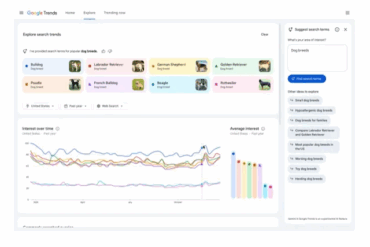By Rick Evans
These days, agencies act more like orchestrators of tech and creator access
A decade ago, I fought tooth and nail to gain a foothold in the advertising industry. I contacted the great-ish minds of our generation leading strategy at the legendary Madison Ave. shops and the new-fangled, tech-enabled experience studios. Handwritten letters rattled the bin without reply. Most emails went unanswered, save for a few generous folks who gleaned genuine interest in my request.
To those folks, I explained my interest—I am curious about people.
During a decade working brand-side marketing roles, I glimpsed what agency strategists got to do and I was jealous. One anecdote came from my time at a youth-focused travel company. As part of a project, I flew to London and trailed a few strategists from our agency for field research. We hit university pubs, buying students pints of cider and lager in exchange for travel stories and booking experiences.
Strategists sought a truth about humans, business and culture. While the world of advertising was already in flux, it still had some shine. It seemed a fitting way to use my journalism degree while making enough to not need more roommates than rooms in my apartment.
There were trips for some to industry confabs. At least once a week, we entertained a client with dinner and drinks or at least a stop at happy hour. I got to do plenty of research interviews. I even spent a few years working at iconic agencies in London, the birthplace of planning.
Today, I fear the industry is losing what made it home for misfits like myself—its focus on people.
Recently, a well-known CMO shared a screenshot on LinkedIn. In the midst of a publisher’s article was an ad. This ad looked nothing like the ads I wanted to help create. You can imagine it now. They are usually found at the bottom of articles on news websites. They feature a clickbait headline, an AI-generated image and a tiny disclosure line in a half-assed attempt to tell you what you’re seeing is an ad and not actual news.
Over the decade since I got into advertising, the share of ad revenue going to Meta, Amazon, Microsoft, Alphabet and TikTok has climbed rom 22 percent to 65 percent, per MoffettNathanson. Instead of the industry using its understanding of people to help these platforms create ad formats and creative that work through narrative and entertainment, agencies bent the knee. They reworked ideas to fit formats, ceded creation to influencers and accepted that somewhere between 5 and 50 percent of the users seeing an ad weren’t people, but bots. Unsurprisingly, the percentage of humans who find advertising annoying has also climbed.
A recent report from Forrester predicts that, “As creators take on more ideation and production responsibilities, creative agencies will act more like orchestrators of tech and creator access.”
Times change and culture shifts. I’m not naïve enough to see this prediction as a surprise nor stubborn enough to grasp at the vestiges of the industry of yore. What floors me about Forrester’s prediction is how willing the industry is to cede its leadership in understanding people.
These digital behemoths have reduced users to data points that brands can buy for pennies on the dollar. They don’t need to understand their users. Heck, they don’t even need to acknowledge that there is a human user. What matters is the identifying ID that bought from an e-commerce shop after tapping an ad so bad that even a junior art director wouldn’t put it in a sparse portfolio.
Our industry can and should do better.
Let’s give life to those aggregated data points. Let’s help clients see what they are already pointing out themselves: AI slop and clickbait ads are not going to win hearts and minds.
Research from System1 and others has shown that creators, as proper collaborators, can play a brand-building role. We can’t settle for becoming an orchestrator when at the very least we should be composing the music.
The smart, creative people with empathy and curiosity that I wrote about on this website a half-decade ago are what make the advertising industry great.
And these people aren’t gone. In terms of positioning, they are still our most valuable offer. They show us that when the advertising industry focuses on people, both those creating the ads and those enjoying them, the advertising industry wins.
By Rick Evans
Rick Evans is a freelance senior brand strategist and marketer with more than 17 years of experience at brands and agencies. Read more…





